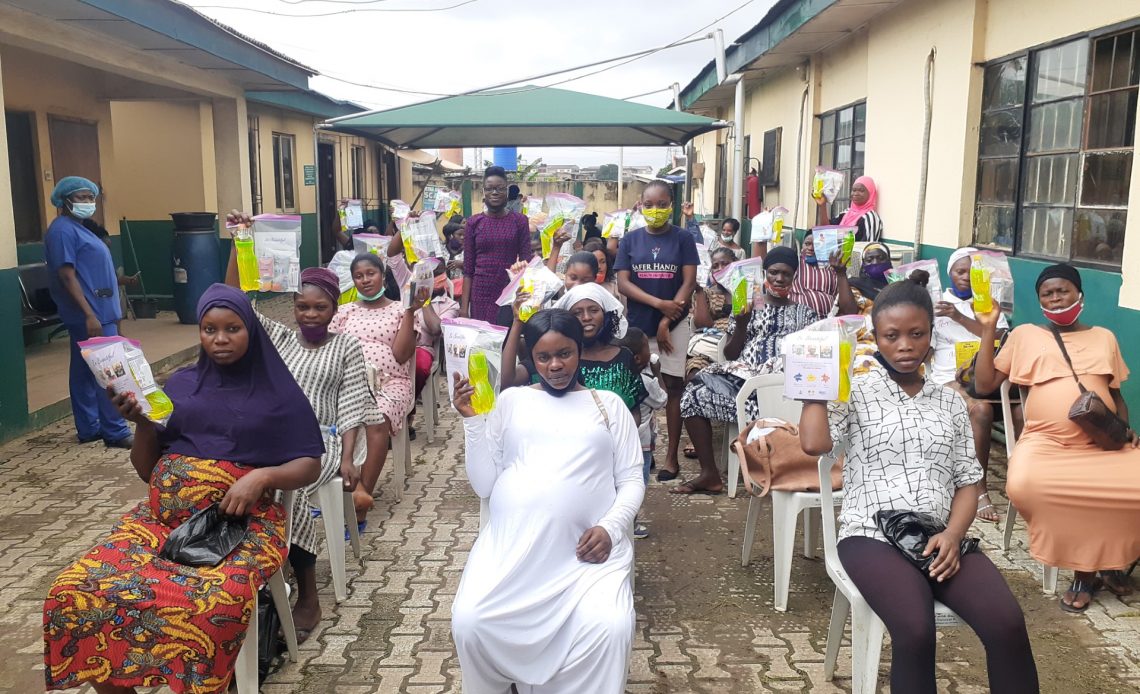Chinonso Kenneth (Lead Writer)
In 2016, Dr. Oluwakemisola Agoyi and Dr. Roland Ojo witnessed the benefits and drawbacks of traditional and community-based birth attendants (TBAs and CBAs) in delivering infants in rural and urban communities across Nigeria.
During their community immersion programme as medical students at the Lagos University Teaching Hospital (LUTH), Dr Agoyi recounted, “A 26-year-old lady was brought in who delivered by a TBA in Mushin, Lagos state and she already had puerperal sepsis which is something you get either from an unhygienic way of delivering or they had used something they were not supposed to use.” Unfortunately, the woman later went into postpartum psychosis and eventually lost her life.
Maternal mortality in Nigeria remains one of the highest globally. A 2023 report from the World Health Organisation (WHO) revealed that Nigeria accounted for 12 percent of global maternal deaths, stillbirths and neonatal deaths — the second largest in the world. This high prevalence of maternal death in the country has been linked to inequities in access to health services during pregnancy and childbirth.

Further data from the 2018 Nigeria Demographic Health Survey also showed that only 43.4 percent of births in rural areas were assisted by a skilled healthcare provider, leaving just under three in every five women, giving birth with the assistance of unskilled traditional birth attendants (TBAs), community-based birth attendants (CBAs) and other alternative healthcare providers.
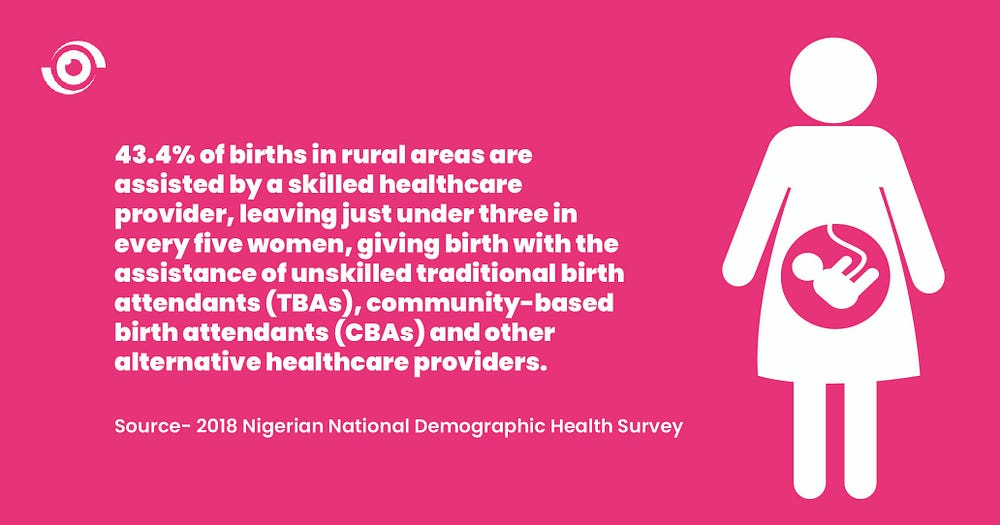
Equipping TBAs for Safer Deliveries
For Dr. Agoyi and Dr. Ojo, their 2016 community immersion experience helped them understand how entrenched and integral TBAs are in underserved communities in Nigeria. As a result of this, the duo established the Safer Hands Health Initiative (SHI) in August 2017 to reduce maternal mortality in Nigeria through education and empowerment of TBAs, CBAs, Primary Health Centres, and pregnant women on safe deliveries and harmful traditional practices.
The SHI project commenced with an extensive nationwide review of available statistics on the maternal mortality burden, the ratio of deliveries by skilled birth attendants in comparison to unskilled birth attendants, and the availability of functional Primary Health Care Centres (PHCs) across the country. Following the identification of the target communities, SHI carried out a needs assessment to ensure that tailored solutions were developed for each selected community.
What’s Working
-
Public-Private Partnerships can help Nigerian hospitals improve maternal health; Here’s how
Public private partnerships are helping hospitals in Nigeria provide more efficient care, especially as it relates to maternal health. In Lagos State, the model – which partners a private healthcare management firm with the hospital – has helped better equip facilities so more laboratory tests can be conducted in one place. Although this solution doesn’t necessarily solve all problems faced by those seeking care, it has helped to provide a more sustainable model of healthcare in many cases. Read more
The pilot project was carried out in Osun state where SHI interfaced with the primary healthcare centres (PHCs) and the local association of TBAs to organise training on safe birth practices and referral for TBAs, CBAs and pregnant women attending antenatal classes.
In states like Lagos where there is an established traditional medicine board, SHI partners with these existing bodies to conduct free trainings for TBAs. Professor Adebukunola Adefule-Ositelu, former Chairman of Lagos State Traditional Medicine Board (LSTMB) shared that aside from the trainings that SHI carries out for TBAs in the State, LSTMB also makes TBAs who are registered with the LSTMB undergo mandatory trainings and immersion courses at PHCs. According to her, the TBAs have a statutory arrangement with health centres to refer difficult cases quickly to avoid maternal mortality.
“More than 70% of the pregnant women show their preferences for the TBAs and that is why LSTMB places them on training, regulation and monitoring,” Professor Adefule-Ositelu explained.
Altering habits and behaviours for the long term
To institute behavioural changes, the TBAs and CBAs are trained on the need to promptly refer their patients to hospitals within the ‘golden 5 minutes’ to ensure proper care is given. Hygienic ways of delivery, workplace sterilisation, decontamination and what to look out for during antenatal and postnatal care are all part of the training curriculum.
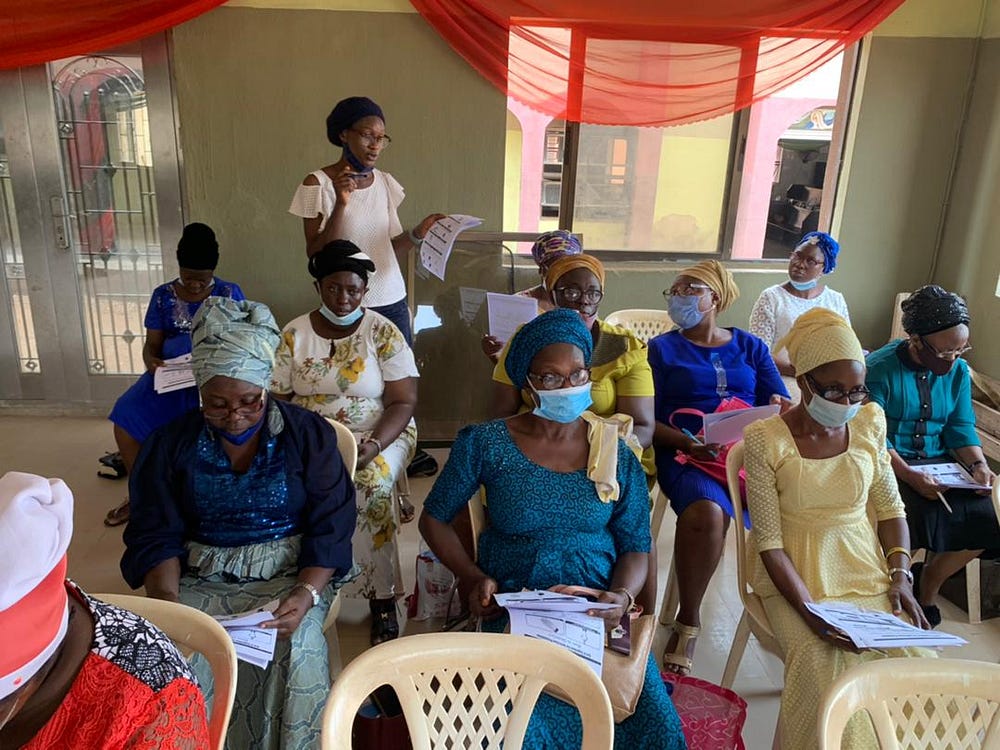
Dr. Agoyi, SHI’s Co-Founder and Programmes Manager, shared that during the training, a session is dedicated to PHC staff to engage with the TBAs on the benefits of appropriate and prompt referrals, especially in cases of prolonged and obstructed labour, seizures and excessive bleeding. They also collaborate with PHC staff to educate TBAs on pliable routes to the PHC.
“Most of the time we train them on new knowledge, how to prevent the 5 core causes of maternal mortality, referral systems and their attitude towards referring patients because they feel like if they refer their patients to the hospital, they will lose their clients to the hospital,” Dr. Agoyi noted.
Maria Bamgbaiye, 56, who has been a practicing CBA in Lagos State for 23 years said the training she receives from SHI acts as refresher courses and keeps her up to date with new systems and knowledge about taking safe deliveries. “They teach us to know our stand, to know what we can do and what we cannot do. Anything out of our hand we are to refer immediately so that there will be no mortality,” Bamgbaiye said.
The training packs include contact information of neighbouring PHCs as well as other secondary health care facilities to which cases can be referred. Dr. Agoyi explained that the plan is to expand this referral ecosystem to include community pharmacies and transport providers for prompt and urgent lifesaving actions.
Transforming maternal care through safe hygiene kits
Beyond training, SHI also provides TBAs, CBAs, PHCs and pregnant women with free sterile birthing kits, which contain basic birthing commodities such as latex hand gloves, soap, mackintosh, sterile gauze, disinfectant as well as instructional materials on hand washing and decontamination of working areas. This is to ensure hygienic, complication-free deliveries and provide a good prognosis for every childbirth process.

Sarah Olajide, 56, and her colleagues, TBAs in Ogun State, have been using the birthing kits SHI provided since 2020. “I use the mackintosh for women and when I use it the blood cannot stain our bed. I use the hand gloves and the surgical blade too is very sharp it’s okay, it has really helped me in my work,” Olajide said.
Aside from aiding contamination and complication-free childbirth, SHI birthing kits also help pregnant women save costs. Mrs Shekinat Sulieman, 37, who resides in Ota, Ogun State gave birth to a baby boy in May 2023. She met SHI staff at one of her antenatal sessions, at the local government health centre, where they were training pregnant women on hygienic deliveries. She said the kits they provided helped her avoid having to buy basic birthing commodities.
“They gave us delivery kits that contained mackintosh, surgical blade, gloves and so many things there. We did not open it till our delivery day so that it won’t be contaminated,” Sulieman said. “That is what I used in delivering my baby and it helped me reduce my expenses because I would have bought those things.”
According to Dr. Ojo, Co-Founder and CEO, SHI has reached 6,249 women and has been able to distribute over 10,000 birthing kits and trained over 200 TBAs and CBAs in 25 underserved communities across 12 states in Nigeria including Lagos, Ogun, Ekiti, Osun, Oyo, Kwara, Gombe, Niger and Jigawa.
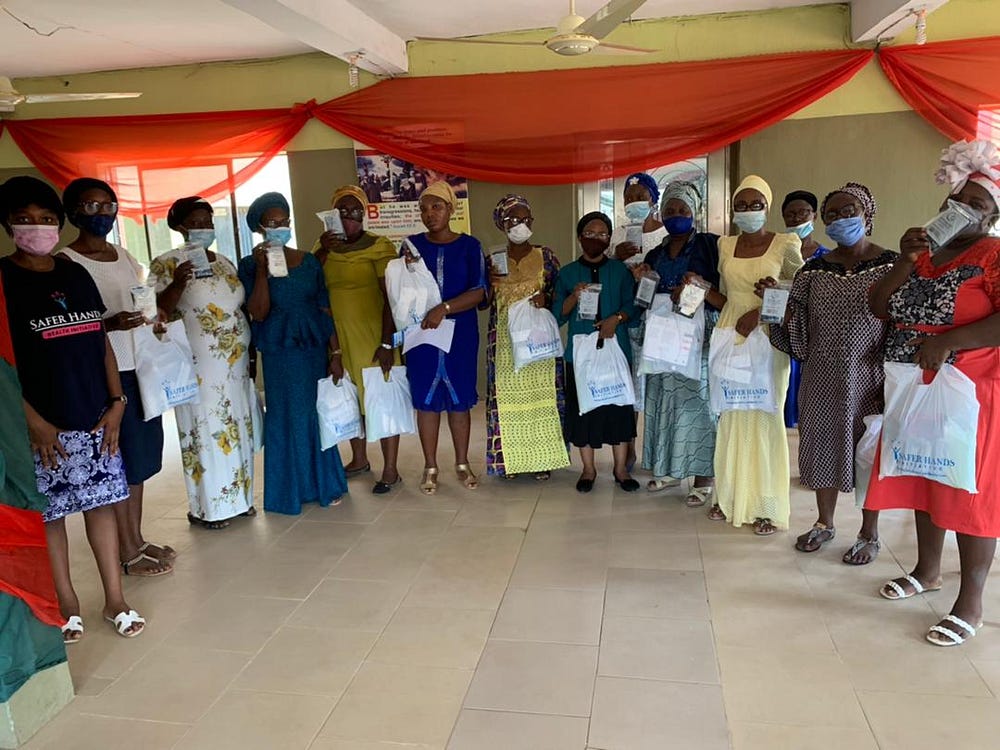
Cultural Challenges
Most TBAs often lack knowledge about safe birthing practices. Dr. Ojo noted that they sometimes run into obstacles with TBAs and their regulators who do not accept and trust them.
“They (TBAs) seem to see us as individuals who have come to exploit them or regulate their practice, so we have issues with them accepting us,” Dr Ojo said. “Sometimes they want us to give them money as part of the help we’re providing.” To sidestep this, SHI has been able to build relationships with the TBA associations by sharing the SHI mission and the scope of operation.
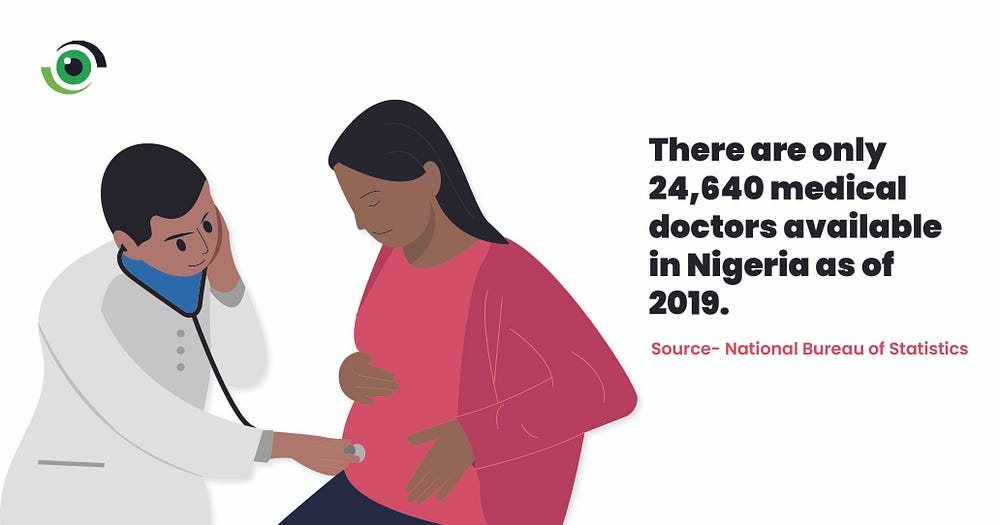
Image credit: Nigeria Health Watch
Funding is also an issue, Dr. Ojo stated. This affects the consistency of trainings, distribution of birthing kits, and the human resources needed to carry out the work. As a result, SHI is constrained to carry out these trainings and distribution of birth kits quarterly or bi-annually, depending on the availability of funds. However, to mitigate these challenges, SHI has been partnering with other non-profits with similar missions to pool resources and cover more ground. They also leverage volunteers, including collaborating with professional organisations and medical youth corps members.
Currently, there are only 24,640 medical doctors available in Nigeria, as of 2019. There is a need to work closely with state health departments to expand the distribution of birth kits, in addition to expanding the availability of midwives in local government areas (LGAs), to assist women when they are giving birth. TBAs remain widely used by women in communities, assisting in about two in every five births, especially for women with no education and from the lowest income quintiles. Working closely with TBAs and providing them with basic health training, so they are encouraged to bring women to health facilities, would help ensure that more women have access to skilled care.


